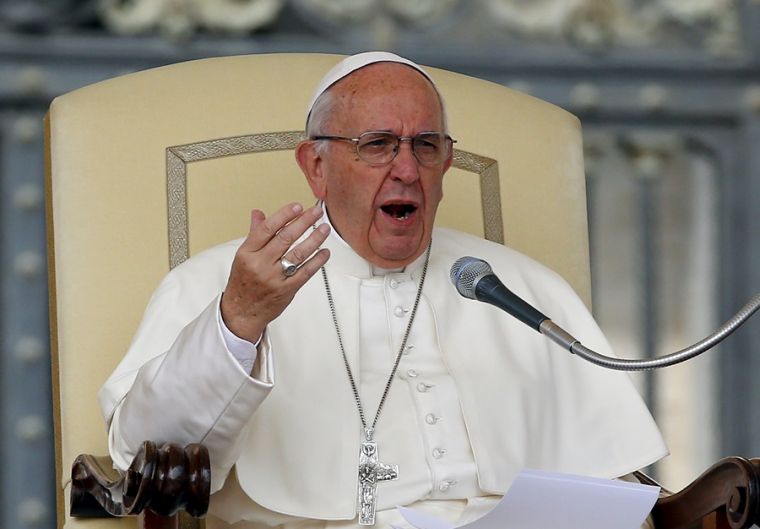Pope Francis tells critics of his 'The Joy of Love' treatise on marriage and the family: 'Open your hearts to God's truth'

Pope Francis acknowledged the backlash from the release of his landmark treatise on marriage and the family last week, telling the critics that emphasis should be placed more on the intent of the apostolic exhortation rather than the letter of the law.
In his homily at Mass on Monday, April 11, the Pope said the critics should open their hearts to "God's truth," Religion News Service reports.
"Their hearts, closed to God's truth, clutch only at the truth of the Law, taking it by 'the letter,' and do not find outlets other than in lies, false witness and death," Pope Francis said, according to a Vatican Radio report.
The Pope likened the critics to those responsible for the witch hunts of the past. Among their victims was St. Joan of Arc, who was burned at the stake in 15th-century France.
"History tells us of many people who were judged and killed, although they were innocent: judged according to the Word of God, against the Word of God," he said.
Criticism from some sectors of the Church came out following the release of Pope Francis' "Amoris Laetitia," or "The Joy of Love" apostolic statement in which he called for priests to take a more pastoral approach to people in "irregular" situations.
The lengthy document included passages on how the Catholic Church should approach gay family members and remarried divorcees.
Among the Pope's leading critics is American Cardinal Raymond Burke, whom the Pope effectively demoted by moving him out of a senior post in the Vatican to a largely ceremonial role as head of a Rome-based Catholic charity.
Commenting on the Pope's newly released post-synodal exhortation, Burke said it cannot change Church teaching and practice, emphasising that the document is not magisterial, LifeSite News reports.
"The Church has historically been sensitive to the erroneous tendency to interpret every word of the pope as binding in conscience, which, of course, is absurd," he wrote in an article published by the National Catholic Register. "Pope Francis makes clear, from the beginning, that the post-synodal apostolic exhortation is not an act of the magisterium."
Burke called on the Church to emphasise that the Pope's personal opinions are not magisterial. "While the Roman Pontiff has personal reflections which are interesting and can be inspiring, the Church must be ever attentive to point out that their publication is a personal act and not an exercise of the Papal Magisterium."
He warned that a failure to make the distinction between the Pope's personal opinion and magisterial teaching "is harmful to the faithful and weakens the witness of the Church as the Body of Christ in the world."











